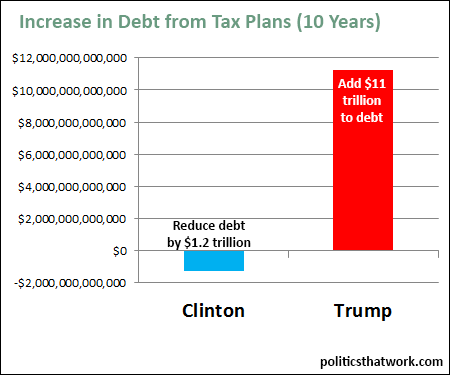
Description: This graph compares the estimated effect that each candidate's tax plan would have on the national debt over the next 10 years.
Sources: Tax Policy Center: Trump Policy Center: Clinton
Data: Excel
Last updated: July 17, 2016

EPI: The Tax Cuts and Jobs Act isn’t working and there’s no reason to think that will change
CNN: Trump ordered Mattis to screw Amazon
Elijah Cummings: We are in a fight for the soul of our democracy
Pro Market: The Cost of America’s Oligopoly Problem